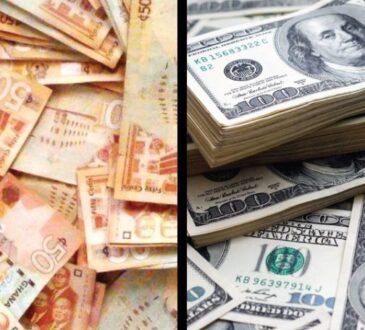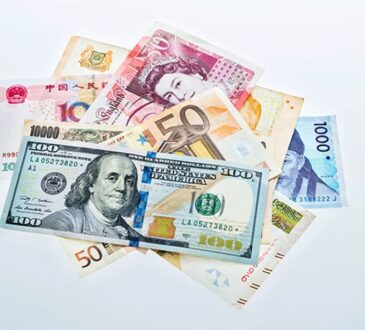
* Thai baht set to lose 1.1% this week * Risk sentiment took a beating this week after Fed By Upasana Singh Sept 22 (Reuters) – Emerging Asian currencies traded in narrow ranges on Friday as investors digested the prospects of high-for-longer U.S. interest rates, while the Bank of Japan did not surprise when it stood pat on its ultra-easy monetary policy. The biggest mover this week has been the Thai baht, which eased 0.1% to be set for a 1.1% weekly decline, hurt by high oil prices and concerns about the government’s spending plans. Investors will now turn their focus towards the Bank of Thailand’s (BoT) interest rate decision due next week. “We think the BoT will put in a final 25bp (basis points) hike in anticipation of a pick-up in inflation and growth in 2024 as well as considering its desire to discourage excessive leverage,” analysts at ANZ wrote in a note. Risk sentiment took a hit this week in the wake of the U.S. Federal Reserve’s hawkish monetary policy stance. “The thematic of rates staying higher for longer, alongside elevated oil prices can result in a deterioration of global growth-inflation mix,” said Christopher Wong, FX strategist at OCBC. “This can undermine risk appetite and weigh on Asian FX, especially those that are highly sensitive to rising oil prices and interest rates, including the yen, won, baht and the Philippine peso.” The South Korean won appreciated 0.3%, although the currency was on track for a 0.8% drop this week. Malaysia’s ringgit and the Chinese yuan rose 0.1% each. The Singapore dollar and Philippines’ peso traded flat. The yen fell 0.4% after the BOJ kept super-low interest rates. Separately, JPMorgan said it will include India in its widely tracked emerging market debt index, setting the stage for billions of dollars of inflows into the world’s fifth-largest economy. The rupee strengthened 0.2%, while equities in Mumbai were flat. Stock markets across emerging Asian economies were broadly higher. Equities in Jakarta and Shanghai advanced 0.5% and 0.8% respectively to lead gains. Shares in Singapore and Bangkok added 0.1% each. HIGHLIGHTS: ** Data showed Malaysia’s consumer price index rose 2.0% in August from the same period a year earlier ** The economic impact of monetary policy tightening by the Philippine central bank will have a long lag and be felt into next year – cbank governor The following table shows rates for Asian currencies against the dollar at 0427 GMT. COUNTRY FX RIC FX FX INDE STOCKS STOCKS DAILY % YTD % X DAILY YTD % % Japan -0.38 -11.5 <.N2 -0.17 24.60 0 25> China EC> India +0.18 -0.27 <.NS 0.01 9.05 EI> Indonesi -0.09 +1.18 <.JK 0.51 2.58 a SE> Malaysia +0.06 -6.10 <.KL -0.08 -3.24 SE> Philippi +0.02 -2.06 <.PS 0.32 -6.89 nes I> S.Korea 11> Singapor +0.00 -1.95 <.ST 0.09 -1.40 e I> Taiwan -0.04 -4.41 <.TW 0.04 15.45 II> Thailand -0.08 -4.43 <.SE 0.11 -9.16 TI> (Reporting by Upasana Singh in Bengaluru; Editing by Edwina Gibbs)




